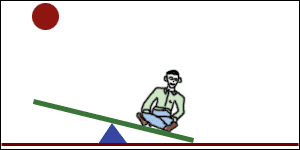Causation As It Relates to the Study of Crime
Researchers often talk about theory in terms of:
X ![]() Y
Y
Where, X = cause
Y = effect
 In other words, X happened first, and then there was a change in Y. In research terms, we call X the independent variable and Y the dependent variable. For now, just know that we are saying that Y is caused by X.
In other words, X happened first, and then there was a change in Y. In research terms, we call X the independent variable and Y the dependent variable. For now, just know that we are saying that Y is caused by X.
But we cannot say in exact terms that Y was caused by X unless we can establish:
- X preceded Y, e.g. X actually did occur before Y (temporal ordering);
- There is a statistical relationship between X and Y (through statistical analysis we have determined that X and Y are correlated (related);
- In the presence of other Xs, the relationship between X and Y does not disappear (e.g. what else might have caused Y and when those other causes are introduced into the statistical model, will the relationship between X and Y still exist?)
This is sometimes referred to as the criteria for causation and it is no easy task. In fact, you would be hard pressed to find a researcher who would state emphatically that X CAUSED Y. Rather, we often talk in terms of probabilities. For example, we say that in the presence of X, it is more probable than not that a change in Y will occur. In other words, just because we have established a relationship between X and Y does not mean that X caused Y, or, correlation does not mean causation.
